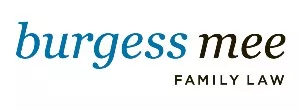What is the child maintenance service (CMS)?
The CMS is a product of and is governed by the Department for Work and Pensions. It works out, collects, and pays out child maintenance on behalf of a parent ('the receiving parent') who cares for their child/children most of the time, from the other parent ('the paying parent'). This is relevant where parents have separated or have never been romantically connected.
The CMS uses a 6-step approach1 to determine how much the paying parent must pay:
- Income – the paying parent's gross yearly income and whether they are in receipt of any benefits.
- Potential variables that could affect income – for example, pension payments or other children they support. The gross yearly figure is then converted into a weekly figure.
- Child maintenance rates – 1 of 5 different rates will be applied2 based on the gross weekly income of the paying parent.
- The number of children the paying party is responsible for – this includes any children that do not belong to the receiving party but for whom the paying party must pay child maintenance for.
- A calculation is made based on the above – the weekly child maintenance amount due is calculated at this point.
- Shared care – a deduction is made based on the average number of nights the paying party cares for the child/children a week.
With as little information as the paying party's gross yearly income and the number of nights your child/children stays with them per week, you can obtain an anonymised child maintenance calculation online for free as a steer at https://www.gov.uk/calculate-child-maintenance. Regular payments into a pension and the receipt of any benefits will affect this figure.
As well as providing a formal child maintenance assessment (a more thorough version of the calculation along with confirmation from HMRC as to the paying parents' income), the CMS also enforces missed payments and provides a 'Collect and Pay' service (for a fee) which deducts child maintenance payments directly from the paying parent (e.g. from their earnings or income-related benefits such as their State Pension).
Is it fit for purpose?
On 28 February 2023, an application by a group of single parents for judicial review of the CMS was granted by the High Court3. The claimants argue that repeated failures on the part of the CMS to enforce payments against the paying parents in their cases have led to substantial arrears accruing over many years.
Evidence in support of the claimants has been provided by Gingerbread, a charity that "fights for single parents and their children", who claim that 36% of children covered by 'Collect and Pay' arrangements are not receiving a penny of the maintenance they are legally entitled to, meaning since 2012, when the CMS began, £512.6 million in unpaid maintenance has accumulated4. Gingerbread has recently received permission to intervene in judicial review proceedings in support of the claimants and hopes to provide its view on how the CMS is working for single parents5 and with a view to encouraging reform. The claimants' application for the court to determine that the failings in their cases were unlawful is to be heard at the High Court on 5 and 6 October 2023 so watch this space.
What does this mean for you?
In situations where the paying parent does not agree with the figure to be paid, an application to the CMS for a formal assessment can be made online for £20. Unlike with other areas of family law, the CMS (a government-run service) has jurisdiction over the family court to ascertain the amount of child maintenance to be paid, as long as both parents and the child/children live in the UK. Whilst this can put the calculation and collection in the hands of a third party thus avoiding protracted correspondence between both parents there may be separate administrative delays which can then prevent child maintenance getting into the hands of the receiving parent. In the worst-case scenario, the CMS can apply for a court order (called a liability order) to take legal action to recover any unpaid child maintenance. The paying parent may be charged for the costs of doing this6.
The only exceptions to the rule that the CMS has jurisdiction over the court is where there is an existing consent order approved by the court that is either less than a year old or made before 3 March 20037, or the paying parent earns more than £156,000 gross per annum8.
As family law solicitors, the best course of action is for both parents to agree a private payment arrangement without intervention of the court or the CMS getting involved. Constructive, amicable dialogue on this point can only benefit any children of the family for whom maintenance is there to support. The online CMS calculator can be a useful starting point for those discussions but we can also assist in writing to the other parent if communication is difficult to open a clear and unambiguous channel as a starting point.
Footnotes
1. https://assets.publishing.service.gov.uk/government/uploads/system/uploads/attachment_data/file/672432/how-we-work-out-child-maintenance.pdf
2. https://www.gov.uk/how-child-maintenance-is-worked-out
3. https://dpglaw.co.uk/wp-content/uploads/2023/03/4058664-CO019652022-I-v-SS-for-Works-and-Pension.pdf
4. https://www.gingerbread.org.uk/our-work/news-and-views/ruling-allows-legal-action-on-cms-to-be-given-full-hearing/#_ftnref1
5. https://www.gingerbread.org.uk/our-work/news-and-views/gingerbread-joins-legal-action-on-cms/
6. https://www.gov.uk/child-maintenance-service/payments
7. https://www.gov.uk/child-maintenance-service/eligibility
8. See guidance as set out in James v Seymour [2023] EWHC 844 (FAM) and to be covered in a forthcoming further article.
The content of this article is intended to provide a general guide to the subject matter. Specialist advice should be sought about your specific circumstances.

